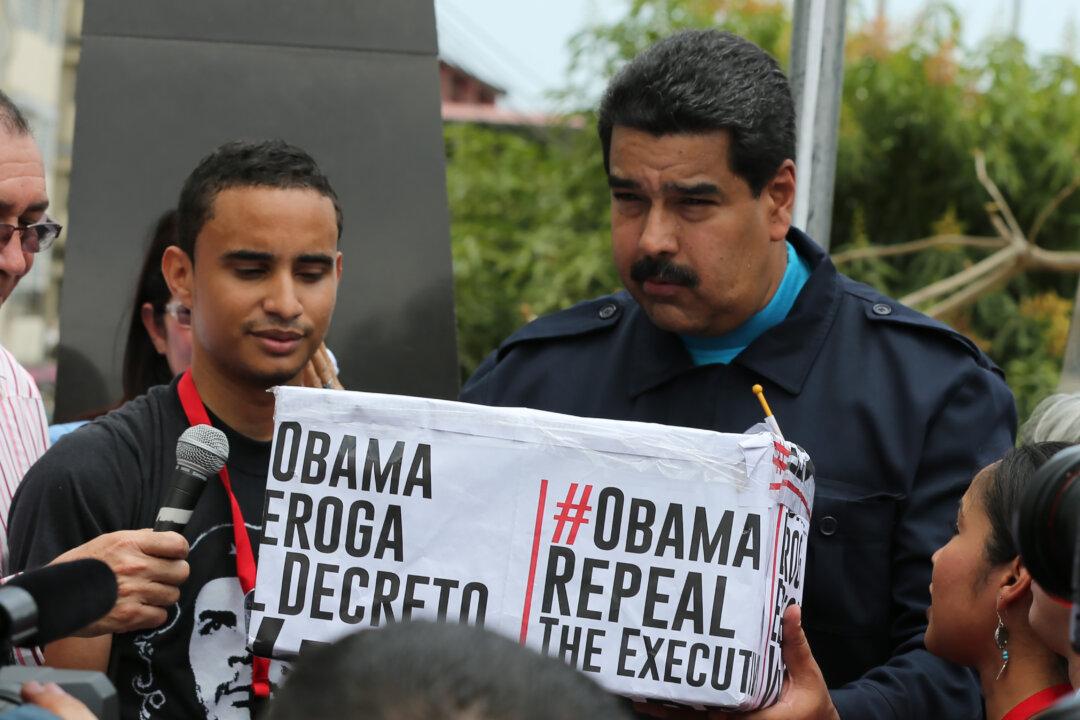CARACAS, Venezuela— Critics of Venezuela’s socialist administration staged a small protest against hunger and crime in Caracas Saturday as the South American country struggles to control violence in food lines.
The past week saw daily reports of looting in supermarkets and raids on food trucks. The country’s opposition coalition called for Saturday’s march after a man was killed and 60 were arrested amid the looting of several grocery stores in an industrial town.
There have been 56 episodes of looting and 76 looting attempts in the first half of 2015, according to the nonprofit Venezuelan Observatory of Social Conflict.
President Nicolas Maduro has called these episodes part of a plot to weaken the country’s 16-year-old revolution, and has accused the United States of helping orchestrate them.
Many pantry staples have become scarce here in recent years, including flour, refined sugar, cooking oil and milk, but it’s not clear that hunger or malnutrition are actually on the rise. Government statistics show nutrition continuing to improve, and officials have rolled out a campaign to reduce the country’s 40 percent obesity rate by half.
While several sought-after items are almost never seen in supermarkets, the shelves are still mostly filled with other goods like rice, beans, cheese, cereal, and a wide variety of produce. And more than two-thirds of adults remain overweight here, according to the World Health Organization, almost as many as in the United States.
Hundreds of protesters gathered Saturday in wealthy eastern Caracas, a much smaller turnout than the last opposition rally, held in May. Venezuela was rocked by a bloody nationwide protest movement in spring of 2014, but has not seen similarly massive protests since, even as daily life has become harder in almost every way.
Opposition coalition spokesman Jesus Torrealba said turnout was small Saturday because most people are spending their weekends waiting in food lines these days.
Some blame the violence on the discontinuation of an unpopular rationing system at government-run stores. These stores, which generally are better stocked than private markets, had been controlling the length of lines by limiting the days Venezuelans could shop based on their government identification numbers.
Lawyer Julio Blanco was among the people who dressed in white and stood among signs denouncing hunger Saturday.
“We’re scared to go into the streets. We’re scared to go out and look for food. The crime here is killing us,” he said





